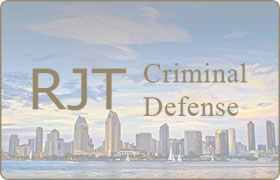 Borrego Springs Criminal Lawyers, California
Borrego Springs Criminal Lawyers, California
Sponsored Law Firm
-
 x
x

Click For More Info:
-
RJT Criminal Defense
2820 CAMINO DEL RIO SOUTH STE 110 SAN DIEGO,CA» view mapDUI Defense, Drug Crimes, Homicide San Diego Criminal Defense Lawyer
San Diego's Experienced,Aggressive Criminal Defense Team is Here. Don’t leave your case, or your future, to chance. Contact us, find out what we can do for you.
800-697-9361 -
- Contact
- Free Evaluation
- Visit:
- Website
- Profile
Lawyers
<
21-30 of 35 matches
Electronic Commerce, Criminal, Business & Trade, Commercial Bankruptcy
Personal Injury, Business, Civil Rights, Criminal, Workers' Compensation
Medical Malpractice, Contract, Criminal, Litigation, White Collar Crime
Administrative Law, Civil & Human Rights, Criminal, Federal Appellate Practice
Bankruptcy, Criminal, Child Custody, Family Law
Personal Injury, Bankruptcy, Antitrust, White Collar Crime, Employee Rights
Personal Injury, Civil Rights, Criminal, Family Law, Immigration





 Ryan James Tegnelia San Diego,CA
Ryan James Tegnelia San Diego,CA About UsRyan James Tegnelia
About UsRyan James Tegnelia Contact UsContact Us Today!!
Contact UsContact Us Today!!